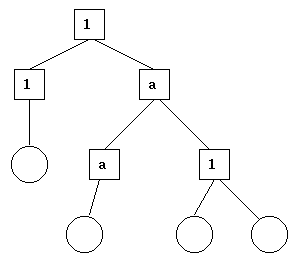1
2
3
4
5
6
7
8
9
10
11
12
13
14
15
16
17
18
19
20
21
22
23
24
25
26
27
28
29
30
31
32
33
34
35
36
37
38
39
40
41
42
43
44
45
46
47
48
49
50
51
52
53
54
55
56
57
58
59
60
61
62
63
64
65
66
67
68
69
70
71
72
73
74
75
76
77
78
79
80
81
82
83
84
85
86
87
88
89
90
91
92
93
94
95
96
97
98
99
100
101
102
103
104
105
106
107
108
109
110
111
112
113
114
115
116
117
118
119
120
121
122
123
124
125
126
127
128
129
130
131
132
133
134
135
136
137
138
139
140
141
142
143
144
145
146
147
148
149
150
151
152
153
154
155
156
157
158
159
160
161
162
163
164
165
166
167
168
169
170
171
172
173
174
175
176
177
178
179
180
181
182
183
184
185
186
187
188
189
190
191
192
193
194
195
196
197
198
199
200
201
202
203
204
205
206
207
208
209
210
211
212
213
214
215
|
slidenumbers: true
Erlang.
======
### Fault-tolerant, concurrent programming.
---
## A brief history of Erlang
---

^ Telefontornet in Stockholm, around 1890. Used until 1913.
---

^ Telephones were operated manually at Switchboards. Anyone old enough to remember? I'm certainly not.
---

^ Eventually we did that in software, and we got better at it over time. Ericsson AXD 301, first commercial Erlang switch. But lets take a step back.
---
## Phone switches must be ...
Highly concurrent
Fault-tolerant
Distributed
(Fast!)

---
## ... and so is Erlang!
---
## Erlang as a whole:
- Unique process model (actors!)
- Built-in fault-tolerance & error handling
- Distributed processes
- Three parts!
---
## Part 1: Erlang, the language
- Functional
- Prolog-inspired syntax
- Everything is immutable
- *Extreme* pattern-matching
---
### Hello Joe
```erlang
hello_joe.
```
---
### Hello Joe
```erlang
-module(hello1).
-export([hello_joe/0]).
hello_joe() ->
hello_joe.
```
---
### Hello Joe
```erlang
-module(hello1).
-export([hello_joe/0]).
hello_joe() ->
hello_joe.
% 1> c(hello1).
% {ok,hello1}
% 2> hello1:hello_joe().
% hello_joe
```
---
### Hello Joe
```erlang
-module(hello2).
-export([hello/1]).
hello(Name) ->
io:format("Hello ~s!~n", [Name]).
% 3> c(hello2).
% {ok,hello2}
% 4> hello2:hello("Joe").
% Hello Joe!
% ok
```
---
## [fit] Hello ~~world~~ Joe is boring!
## [fit] Lets do it with processes.
---
### Hello Server
```erlang
-module(hello_server).
-export([start_server/0]).
start_server() ->
spawn(fun() -> server() end).
server() ->
receive
{greet, Name} ->
io:format("Hello ~s!~n", [Name]),
server()
end.
```
---
## [fit] Some issues with that ...
- What about unused messages?
- What if the server crashes?
---
## [fit] Part 2: Open Telecom Platform
### **It's called Erlang/OTP for a reason.**
---
# OTP: An Application Framework
- Supervision - keep processes alive!
- OTP Behaviours - common process patterns
- Extensive standard library
- Error handling, debuggers, testing, ...
- Lots more!
^ Standard library includes lots of things from simple network libraries over testing frameworks to cryptography, complete LDAP clients etc.
---
# Supervision

^ Supervision keeps processes alive, different restart behaviours, everything should be supervised to avoid "process" (and therefore memory) leaks
---
# OTP Behaviours
* `gen_server`
* `gen_statem`
* `gen_event`
* `supervisor`
^ gen = generic. explain server, explain statem, event = event handling with registered handlers, supervisor ...
---
`gen_server`
---
## [fit] Part 3: BEAM
### Bogdan/Bjørn Erlang Abstract machine
---
## A VM for Erlang
* Many were written, BEAM survived
* Concurrent garbage-collection
* Lower-level bytecode than JVM
* Very open to new languages
(Elixir, LFE, Joxa, ...)
---
## What next?
* Ole's talk, obviously!
* Learn You Some Erlang!
www.learnyousomeerlang.com
* Watch out for the Oslo BEAM meetup group
|
